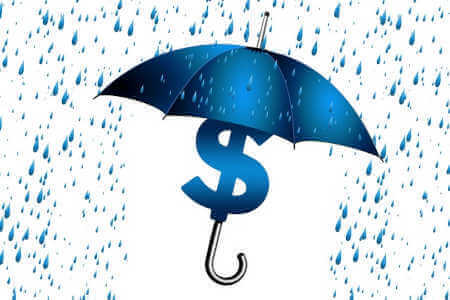How to Deal With Debt Collectors
When your creditor decides they no longer want to try to collect overdue debts, they may assign or sell those debts to third-party debt collectors. Collections account is a debt (account) that have been sold or turned over to a collection agency. This usually happens when the account is more than 180 days past due.
When your account goes into collections, it remains on your credit file for seven years from the date the account became first past due, or Date of Last Activity.
Things you should know when your account goes into collections
Below are a few other things you should know about a collection account on your credit report:
A collection account stays on your credit file for 7 (seven) years from the date the account became first past due, or date of last activity.
Paying off a collection account will not remove it from your credit report, it will remain on your report with a $0 until the end of the 7 years.
Having a collection with a $0 balance is better for your credit score than a collection account with a balance.
Paying off a collection account will however temporarily hurt your credit score, as it is considered activity on a negative account.
In the long run, paying off a collection account will be better for your scores.
Calling a collection agency or making a payment does not re-start the seven years that an account can be on your report.
If you successfully remove a collection account from your credit report, it does not mean you do not owe it. A collector can continue to try to collect until the debt is paid or negotiated. (always keep good records)
There are tax consequence to negotiating debt forgiveness. By law, lenders or creditors are required to issue you a Form 1099-C, Cancellation of Debt, if they cancel a debt owed to them of $600 or more. Any debt or portion of a debt that is forgiven is considered taxable income in the eyes of the IRS.
Things you should NEVER DO when a debt collector calls you
Don't share private information (like bank accounts, your credit or debt card numbers) no matter what debt collectors say.
Record the call if you can or write down all dates, times, and detailed notes of what's said for each call.
Keep records by saving everything debt collectors send you and make copies of anything before you send it (don't send originals).
Questions to ask when a debt collector calls you

1 If you're contacted by a debt collector, the first thing to remember is that the Fair Debt Collections Practices Act provides you with rights and it's important that you know your right before speaking to them, it you must. Read about your right under the Fair Debt Collections Practices Act at the bottom of this page.
2 Remember the debt collector is not your friend or your therapist and doesn't care about your Credit situation or your reasons for not paying the bill. Their main goal is to collect whatever they can, whichever way they can.
3 DO NOT admit to the debt and never allow them to take control of the call by asking you a series of question. Remember they have very limited information on you and will try get more personal information out of you if you volunteers that information. Questions like, where do you work or how much do you take home, is none of their business.
NEVER give debt collectors more information than they need!4 Flip the switch on them and instead of answering questions, ask them these questions and write down their answers. Remember, never admit to the debt. Once you have asked the questions below, end the call by telling them you will get back to them. (Do not answer their questions)
5 At the end of the call, if you need to request more information about the debt, fill out and send the first template to the debt collector. Don't forget to check the boxes next to the information you're requesting.
6 If the debt isn't yours, fill out and send the second template to dispute the debt.
Know Your Rights
The Fair Debt Collections Practices Act provides you with rights when a debt collector is trying to get you to pay a debt. There are laws about how debt collectors can act, what they can say, and how they can treat you. Below are your rights:
A debt collector can’t:
Call repeatedly to harass you or abuse you
Use abusive or obscene language
Threaten you by saying they’ll take action they can’t or don’t intend to take
Call you without telling you who they are
Lie to or mislead you
Publish your name for not paying a debt
Hang up if a debt collector harasses, curses or threatens you. Report them at
www.reportfraud.ftc.gov


Reporting Accurate Negative Information
When negative information in your report is accurate, only the passage of time can assure its removal. A consumer reporting company can report most accurate negative information for seven years and bankruptcy information for 10 years. Information about a collection against you can be reported for seven years.

